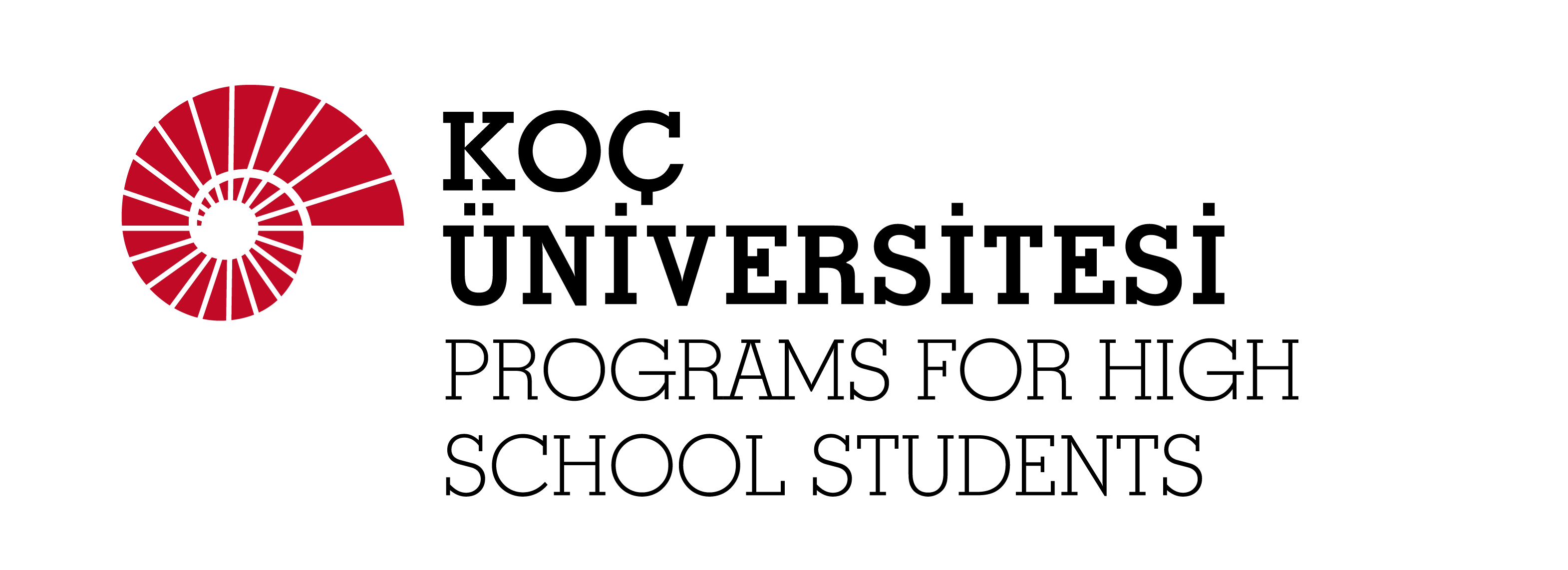Course Contents
Course 1 Monday - Wednesday 09:00-11:00
| No | Course 1 | Faculty Member/Instructor | Course Language |
| 1 | Introduction to Programming with Python | Lecturer Buket Yüksel | English |
| 2 | Molecular Biology and Genetics | PhD Samet Ağca | English |
| 3 | Public Law | Asst. Prof. Işıl Aral | Turkish |
| 4 | Start Your Career Today | Tuna Dağlı Koç University Career Development Center Director | Turkish |
| 5 | Scientific Basis of Medicine (To be announced) (CLOSED) | To be announced | Turkish |
| 6 | Principles of Economics | Prof. Tolga Yüret | English |
| 7 | Environmental Science (CLOSED) | Lecturer Yeliz Utku Konca | English |
| 8 | Marketing Management | PhD Aydın Kahyaoğlu | English |
| 9 | Creative Thinking in Design | PhD Hakan Yılmazer | English |
Course 2 Monday - Wednesday 13:00-15:00
| No | Course 2 | Faculty Member/Instructor | Course Language |
| 1 | Introduction to Programming with Python (CLOSED) | Lecturer Buket Yüksel | English |
| 2 | Scientific Basis of Medicine (To be announced.) | To be announced | Turkish |
| 3 | Introduction to Psychology | PhD Hande Özlem Atar | English |
| 4 | Law of the Future and the Future of Law | Asst. Prof. Yiğit Sayın | Turkish |
| 5 | Ethics (CLOSED) | Lecturer Nalan Saraç | English |
| 6 | Principles of Economics | Prof. Tolga Yüret | English |
| 7 | Introduction to Sociology | Assoc. Prof. Barış Büyükokutan | Turkish |
| 8 | Marketing Management | PhD Aydın Kahyaoğlu | English |
| 9 | Creative Thinking in Design | PhD Hakan Yılmazer | English |
Course 3 Tuesday - Thursday 09:00-11:00
| No | Course 3 | Faculty Member/Instructor | Course Language |
| 1 | Molecular Biology and Genetics | PhD Samet Ağca | English |
| 2 | Introduction to Psychology | PhD Hande Özlem Atar | English |
| 3 | The Impact of AI Technology on Various Engineering Disciplines | Lecturer Hakan Ayral | English |
| 4 | Introduction to Political Science | Assoc. Prof.&Principal Investigator Selim Erdem Aytaç | English |
| 5 | Constitutional Law | Research Asistant Begüm Gürcüoğlu | Turkish |
| 6 | Quantum Physics | Lecturer Nazmi Yılmaz | English |
| 7 | Introduction to Ecology (CLOSED) | Research Assoc. Prof.&Lecturer Morteza Naderi | English |
| 8 | 3D Modeling and Printing | PhD Yağmur Kocaman | Turkish |
| 9 | Archaeology (CLOSED) | PhD Fatma Kalkan | Turkish |








